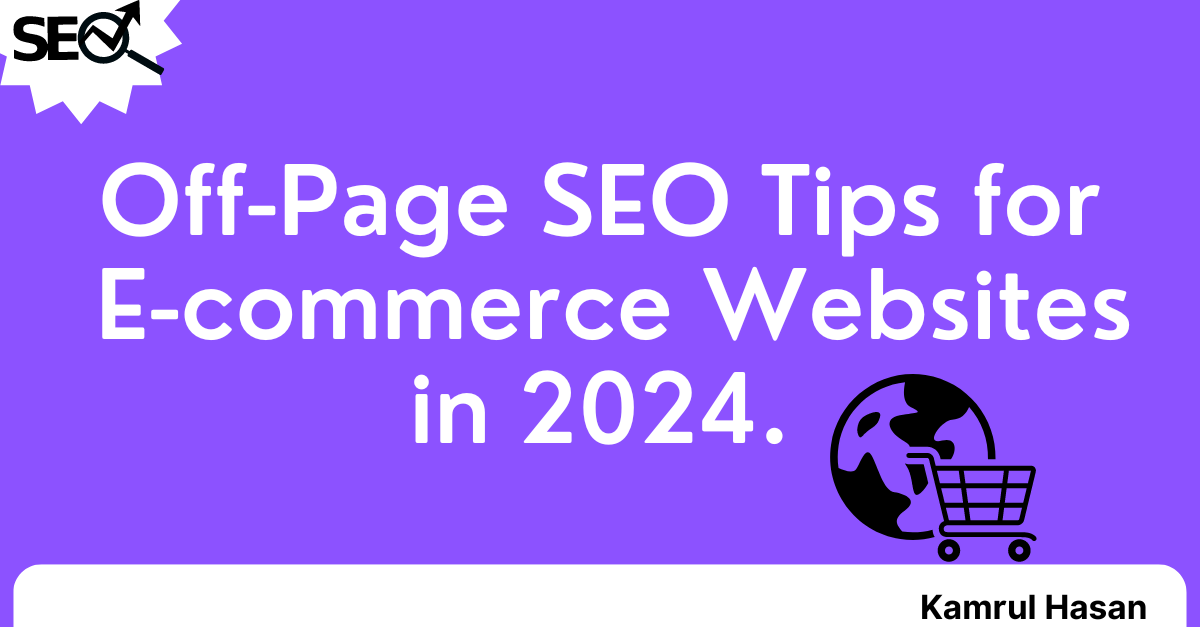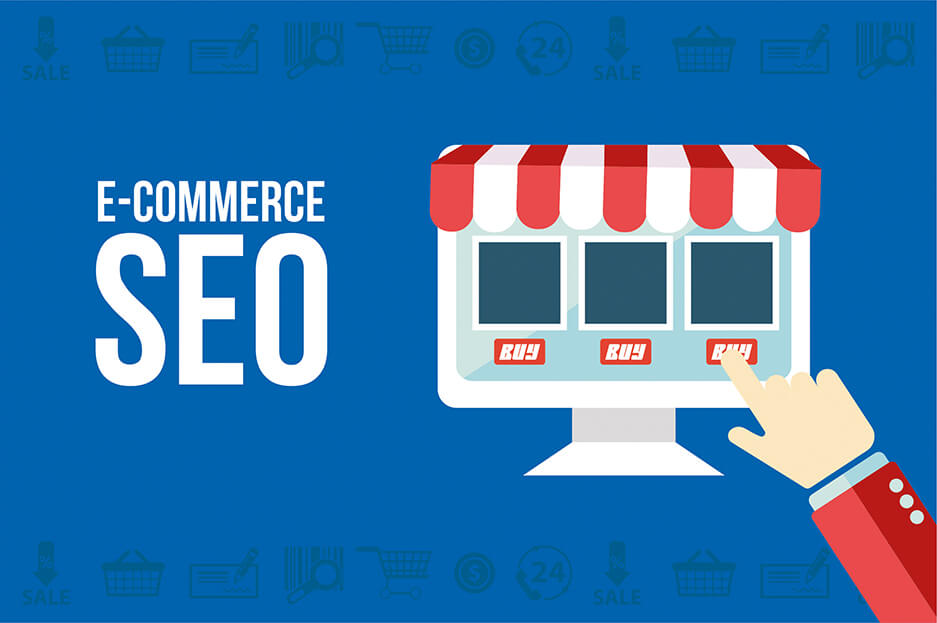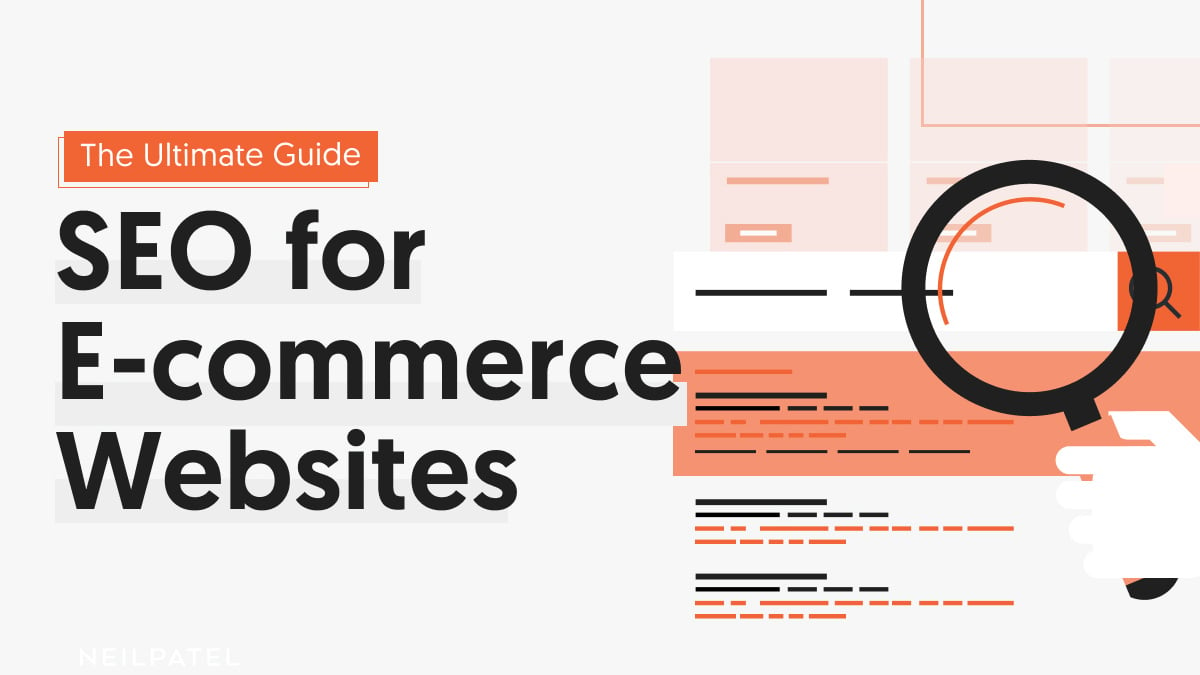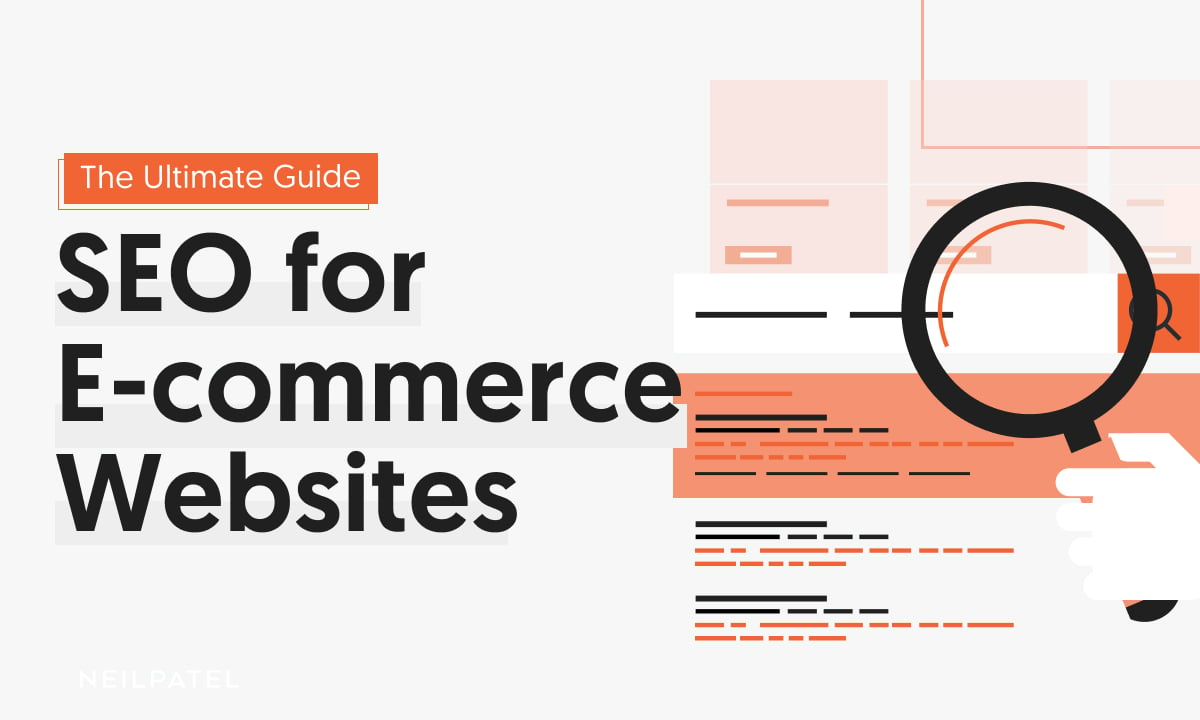SEO is crucial for e-commerce success. It helps your online store rank higher.
This means more visitors and sales. But, optimizing an e-commerce site is unique. E-commerce websites face tough competition. Every business wants to be at the top. Effective SEO can give you an edge. It’s more than just keywords. It involves site structure, user experience, and content quality.
Good SEO practices make your site easier to find. They also improve the shopping experience. In this blog, we’ll discuss essential SEO tips. These tips will help your e-commerce site perform better. Stay tuned to learn how to attract more customers. Let’s dive into the world of e-commerce SEO.
Keyword Research
Keyword research is the cornerstone of SEO for e-commerce websites. Proper keyword research helps you find the terms your potential customers are searching for. This way, you can optimize your site to meet their needs. Let’s dive into the essential steps of keyword research.
Finding Relevant Keywords
Start by brainstorming a list of words related to your products. Think about what your customers might type into a search engine. Use tools like Google Keyword Planner or Ahrefs to expand your list. These tools show search volume and competition for each keyword. Focus on keywords with a high search volume and low competition. This increases your chances of ranking higher in search results.
Analyzing Competitor Keywords
Look at what keywords your competitors are targeting. Tools like SEMrush and SpyFu can help with this. Enter your competitor’s URL to see the keywords they rank for. This can give you ideas for new keywords to target. Compare these keywords with your list. Add any relevant ones to your keyword strategy. This helps you stay competitive and find new opportunities.

Credit: www.linkedin.com
On-page Optimization
On-page optimization plays a crucial role in improving e-commerce websites. It involves tweaking various elements within your website to enhance search engine rankings. When done right, on-page optimization can drive more traffic and improve user experience. Here are some essential tips for optimizing your e-commerce site.
Title Tags And Meta Descriptions
Title tags are important for search engines. They tell what your page is about. Ensure your title tags include main keywords. Keep it under 60 characters. Make it compelling. Meta descriptions provide a brief summary of your page content. They should be under 160 characters. Include your main keywords and a call to action. This encourages users to click through.
Header Tags And Content Structure
Header tags help organize your content. Use H1 for the main title. Use H2 for main sections. Use H3 for sub-sections. This structure makes your content easier to read. It helps search engines understand your page better. Break down content into smaller chunks. Use bullet points and short paragraphs. This enhances user experience. It also helps with readability.
Product Page Seo
Product Page SEO is crucial for e-commerce websites. It helps in attracting more visitors and improving sales. Optimizing each product page can greatly impact your site’s visibility on search engines. Here are some effective strategies to optimize your product pages.
Optimizing Product Descriptions
Product descriptions play a key role in SEO. They should be unique, informative, and engaging. Avoid using manufacturer descriptions as they are often duplicated across the web.
- Include primary keywords naturally.
- Write in short paragraphs for better readability.
- Highlight key features and benefits.
Here is a quick example:
Our
blue running shoes offer unmatched comfort and style. Designed with breathable mesh, they keep your feet cool during long runs. The cushioned sole ensures a smooth and enjoyable experience.
Using High-quality Images
Images are vital for e-commerce. They help customers visualize the product. Use high-resolution images to make a great impression.
| Image Optimization Tips |
|---|
| Use descriptive alt text for each image. |
| Compress images to improve load speed. |
| Show the product from multiple angles. |
Good image practices can enhance user experience and improve SEO. Ensure all images are relevant and of high quality.
Technical Seo
Technical SEO is critical for the success of e-commerce websites. It ensures that search engines can crawl and index your site effectively. This helps in improving your site’s visibility and ranking. Let’s explore some vital aspects of Technical SEO.
Improving Site Speed
Site speed significantly affects user experience. A slow site can frustrate users and increase bounce rates. To improve site speed, optimize images. Use compressed image formats. Limit heavy scripts and third-party plugins. Enable browser caching and reduce server response time.
Use a Content Delivery Network (CDN) to distribute content faster. A CDN stores copies of your site across multiple locations. This ensures that users get content from the nearest server. Faster loading times can boost your site’s ranking.
Ensuring Mobile-friendliness
Most users shop online using mobile devices. Your site must be mobile-friendly to cater to these users. Use a responsive design that adapts to different screen sizes. Check your site’s mobile usability using Google’s Mobile-Friendly Test tool.
A mobile-friendly site enhances user experience. It reduces bounce rates and increases conversions. Ensure that buttons and links are easy to tap. Optimize your content layout for mobile screens. Avoid using Flash as it is not supported on many mobile devices.
User Experience
User experience plays a crucial role in the success of e-commerce websites. A seamless and enjoyable user experience can lead to higher engagement and conversion rates. By focusing on streamlining navigation and enhancing site search, you can significantly improve the user experience on your e-commerce site.
Streamlining Navigation
Easy navigation helps users find what they need quickly. Use a simple, intuitive menu structure. Group similar items together. Ensure your menu is visible on all pages. Avoid cluttering the navigation with too many options. Clear categories and subcategories guide users efficiently. A breadcrumb trail is helpful. It shows users their current location on the site. This reduces frustration and keeps users engaged.
Enhancing Site Search
A robust search function is essential for user experience. Make sure your search bar is easily accessible. Use autocomplete to speed up search queries. This helps users find products quickly. Implement filters and sorting options. This allows users to narrow down search results. Provide relevant results based on search queries. Ensure the search function understands synonyms and common misspellings. This ensures users find what they are looking for, even with minor errors.

Credit: internetdevels.com
Content Marketing
Content marketing is crucial for e-commerce websites. It helps attract potential customers and boosts search engine rankings. By creating valuable content, you can engage your audience and establish your brand’s authority. Let’s explore two effective content marketing strategies for e-commerce websites: creating valuable blog posts and utilizing video content.
Creating Valuable Blog Posts
Blog posts are a great way to connect with your audience. Write about topics related to your products. Offer tips, guides, and insights that your customers will find useful. This keeps them coming back for more.
Use keywords naturally in your posts. This helps search engines understand your content. Avoid keyword stuffing. Instead, focus on providing real value to your readers. Make your posts easy to read with short paragraphs and bullet points.
Include internal links to other pages on your site. This improves navigation and keeps visitors on your site longer. Also, encourage readers to leave comments and share your posts. This increases engagement and social proof.
Utilizing Video Content
Videos can significantly boost your e-commerce site’s visibility. They provide a dynamic way to showcase your products. Create product demos, tutorials, and customer testimonials. These types of videos build trust and show your products in action.
Optimize your video titles and descriptions with relevant keywords. This helps search engines index your videos correctly. Include a call to action in your videos, directing viewers to your site or product pages.
Host your videos on platforms like YouTube and embed them on your site. This increases your content’s reach and drives more traffic to your site. Encourage users to like, comment, and share your videos to maximize engagement.
Link Building
Link building is a critical aspect of SEO for e-commerce websites. It involves acquiring hyperlinks from other websites to your own. These links act as votes of confidence, signaling to search engines that your site is trustworthy and relevant. Effective link building can significantly improve your site’s search engine rankings and drive organic traffic. Here are some essential strategies to help you build a strong link profile for your e-commerce website.
Earning Quality Backlinks
Earning quality backlinks is crucial for improving your site’s authority. Focus on obtaining links from reputable and relevant websites. Here are some ways to earn quality backlinks:
- Guest Blogging: Write informative articles for respected blogs in your industry. Include a link back to your site.
- Product Reviews: Reach out to bloggers and influencers to review your products. This can lead to valuable backlinks.
- Broken Link Building: Identify broken links on other websites. Offer your content as a replacement.
- Resource Pages: Get your site listed on resource pages related to your niche.
Building Internal Links
Internal links are links that point to other pages within your website. They help distribute page authority and enhance user navigation. Here are some tips for building internal links effectively:
- Link Relevant Content: Connect related products and articles. This keeps visitors engaged and improves SEO.
- Use Descriptive Anchor Text: Use clear and relevant anchor text. This helps search engines understand the linked content.
- Update Older Content: Regularly update older blog posts and product pages with new internal links.
- Site Structure: Ensure your site’s structure is logical. Use categories and subcategories to organize content.
Effective link building, both external and internal, can boost your e-commerce website’s visibility. Implement these strategies to create a robust link profile and enhance your SEO efforts.

Credit: neilpatel.com
Measuring Success
Understanding how your e-commerce website performs is essential. Measuring success helps you know what works and what needs improvement. By tracking key metrics and using analytics tools, you can make informed decisions that boost your online store’s growth.
Tracking Key Metrics
Tracking key metrics is crucial for any e-commerce website. Here are some important metrics to monitor:
- Traffic: The number of visitors to your site.
- Bounce Rate: The percentage of visitors who leave after viewing one page.
- Conversion Rate: The percentage of visitors who make a purchase.
- Average Order Value (AOV): The average amount spent per order.
- Customer Acquisition Cost (CAC): The cost to acquire a new customer.
Monitoring these metrics helps you understand customer behavior. It also shows how well your marketing strategies perform.
Using Analytics Tools
Using analytics tools is essential for measuring success. Here are some popular tools to consider:
| Tool | Features |
|---|---|
| Google Analytics | Tracks website traffic, user behavior, and conversion rates. |
| SEMrush | Provides SEO insights, keyword tracking, and competitor analysis. |
| Hotjar | Offers heatmaps and user recordings to understand user interactions. |
These tools provide valuable data to help you make informed decisions. They help you identify areas for improvement and track the effectiveness of your SEO efforts.
Frequently Asked Questions
How Can I Improve My E-commerce Site’s Seo?
Improve your site’s SEO by using relevant keywords, optimizing images, and creating quality content regularly.
Why Is Mobile Optimization Important For E-commerce Seo?
Mobile optimization ensures your site is user-friendly on all devices, improving user experience and search rankings.
What Role Do Product Descriptions Play In Seo?
Product descriptions with relevant keywords help search engines understand your products, improving your site’s visibility in search results.
How Often Should I Update My E-commerce Site Content?
Regular updates keep your content fresh and relevant, which can boost your SEO rankings and attract more visitors.
Is Having A Blog Important For E-commerce Seo?
Yes, a blog allows you to create valuable content, attract more visitors, and improve your site’s search rankings.
How Do Backlinks Affect My E-commerce Seo?
Backlinks from reputable sites enhance your site’s credibility, increasing your chances of ranking higher in search engine results.
Conclusion
Optimizing your e-commerce website boosts visibility and sales. Focus on keyword research. Ensure mobile-friendly design and fast loading times. Craft unique, engaging content. Utilize high-quality images and detailed product descriptions. Regularly update your SEO strategies. Measure performance with analytics tools.
Apply these tips consistently. Watch your e-commerce business grow.


